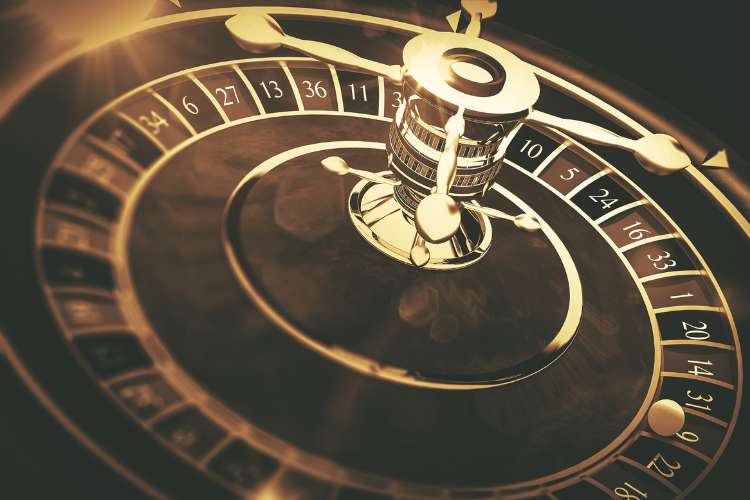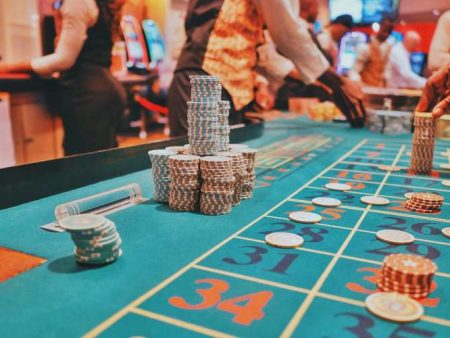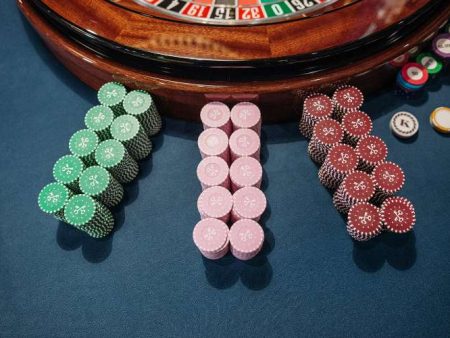
What's on this page
Roulette is a game of chance that has captured the hearts of millions, becoming a symbol of glamour, thrill, and luxury. For UK players, roulette is not just a casino game; it’s a journey through history, a blend of excitement and strategy that has evolved over centuries. From its humble beginnings in France to its prominent place in modern UK casinos, roulette has come a long way. In this article, we’ll explore how roulette made its way from the streets of Paris to the glitzy casinos of the UK, and why it remains one of the most beloved games worldwide.
The Origins of Roulette in France
The story of roulette begins in France, where it was first conceived in the 17th century. While the game’s exact origins remain somewhat mysterious, many historians credit French roulette as the foundation for the game we know and love today. The French word “roulette” means “little wheel,” which is a fitting name for a game that revolves around a spinning wheel with numbered slots.
One of the earliest influences on the game was the famous French mathematician Blaise Pascal. In the 1650s, Pascal was experimenting with creating a perpetual motion machine. While his invention didn’t succeed, it did lay the groundwork for the creation of the roulette wheel. In the 18th century, roulette began to evolve into a gambling game, making its debut in French casinos by the mid-1700s.
The original basics of roulette were simple: the wheel had 36 numbers, divided into black and red slots. As time went on, the game saw refinements, most notably from François and Louis Blanc, who are credited with adding the single-zero wheel in the 1830s. This version of roulette eliminated the double-zero pocket that was found in earlier wheels, reducing the house edge and making it more attractive to players.
The Evolution of Roulette in France
As the game grew in popularity, roulette became a key feature of French casinos, particularly in Paris. In the 19th century, gambling was a significant part of French society, and roulette was regarded as a high-society game. The French roulette wheel, with its single-zero and 36 numbered pockets, became the standard in most European casinos. The addition of the inside and outside bets—such as betting on red or black, odd or even, and individual numbers—made the game more exciting and added to the complexity of the betting strategy.
The Blanc family played a crucial role in the development of roulette, not only by refining the wheel but also by spreading the game beyond France. They took the game to other European countries, most notably to Germany and Monaco. In 1863, the Blanc family opened the legendary casino in Monte Carlo, where roulette became an integral part of the casino’s offerings. As word spread about the game’s potential for big wins and thrilling moments, roulette’s popularity skyrocketed across Europe.
The French roulette wheel became synonymous with luxury and exclusivity. Over time, it also inspired other versions of the game, including the American version, which featured a double-zero pocket. However, the French wheel remained the gold standard in many high-end casinos around the world, known for its lower house edge and sophisticated appeal.
Roulette Spreads to the UK: Early History
Roulette’s journey to the UK began in the 19th century. Initially, British players encountered roulette in the luxury resorts of Europe, particularly in France and Monaco. As the game gained fame, it started to attract the attention of British gamblers, many of whom were keen to try their luck at the spinning wheel.
In the early days, roulette was a private affair in the UK, often played in exclusive clubs or small gambling establishments. The game was not widely available to the general public, as gambling laws in the UK were much stricter compared to those in France. However, by the late 19th century, as the popularity of roulette continued to grow, UK casinos began offering the game to players.
Interestingly, the British version of the game initially featured a slightly different layout than the French roulette wheel. While the number layout remained similar, the UK version was often based on the American wheel, which had both a single-zero and double-zero pocket. This design increased the house edge, making it a less favorable option for players.
Despite these early differences, roulette was gradually gaining traction in the UK, and by the 20th century, it had become a key attraction in many British casinos.
The Rise of Roulette in the UK
The turning point for roulette in the UK came in 1961, with the passing of the Gaming Act. This legislation legalized casino gambling in the UK, paving the way for the creation of land-based casinos across the country. As these casinos opened their doors, roulette became one of the central attractions. It was seen as a glamorous, sophisticated game that appealed to players who sought excitement and the potential for big wins.
During this period, French roulette started to gain popularity among British players due to its lower house edge. UK casinos began offering a more European-style game with the single-zero wheel, allowing players to enjoy the excitement of French roulette while reducing the house advantage.
By the late 20th century, UK casinos had embraced roulette fully, and it had become a key part of British gambling culture. The popularity of the game soared, and casinos saw an increase in both the number of players and the stakes being wagered. Roulette was no longer just for the elite—it was a game enjoyed by players from all walks of life.
The rise of roulette in the UK coincided with the growth of roulette tournaments and special events, attracting competitive players who sought the thrill of competing for large cash prizes. These tournaments further fueled the excitement surrounding the game and cemented its place in the hearts of UK players.
Roulette in Modern UK Casinos
Today, roulette is one of the most popular games in UK casinos, both online and offline. The game has evolved to suit the needs of modern players, offering a wide variety of versions and betting options. Whether you prefer to play at a traditional brick-and-mortar casino or try your luck online, roulette remains an exciting option for players of all levels.
In land-based UK casinos, players can find a wide range of roulette options, including French roulette, European roulette, and the more traditional American roulette. These variations offer different layouts and rules, but they all maintain the core thrill of watching the wheel spin and hoping for a win.
Online casinos have also embraced the game, offering players the opportunity to enjoy roulette from the comfort of their homes. Live dealer roulette has become incredibly popular, allowing players to interact with real dealers in real-time while still enjoying the excitement of the casino atmosphere. These online platforms often feature promotions and bonuses to attract new players, making roulette more accessible than ever.
Cultural Significance of Roulette in the UK
Roulette is not just a game in the UK; it’s a cultural symbol. The game represents glamour, risk, and the thrill of chance. Over the years, it has been featured in countless movies, books, and television shows, often as the epitome of high-stakes gambling.
For many UK players, the allure of roulette lies not only in the chance to win big but in the entire experience—dressing up for a night at the casino, watching the wheel spin, and experiencing the tension of waiting to see where the ball lands. The game has become synonymous with luxury, excitement, and the feeling of taking a risk for the possibility of a huge reward.
Roulette has also maintained its appeal due to its simplicity. While there are strategies to consider, the basics of roulette are easy to understand, making it an ideal game for both beginners and experienced players alike. The game’s straightforward nature, combined with its thrilling possibilities, continues to captivate players across the UK.
Conclusion
Roulette’s journey from its humble origins in France to becoming a mainstay in UK casinos is a testament to the game’s enduring appeal. From its early days in French gambling halls to its rise in British casinos, roulette has evolved, but its core thrill remains the same: the anticipation of where the ball will land.
Today, French roulette and its variations continue to captivate players in the UK, both in physical casinos and online platforms. Whether you’re new to the game or a seasoned pro, the excitement of the spinning wheel is something that never fades. As you enjoy the game, remember to approach it with the spirit of fun and always play responsibly. Roulette’s rich history and modern appeal make it a must-try for any casino enthusiast.





